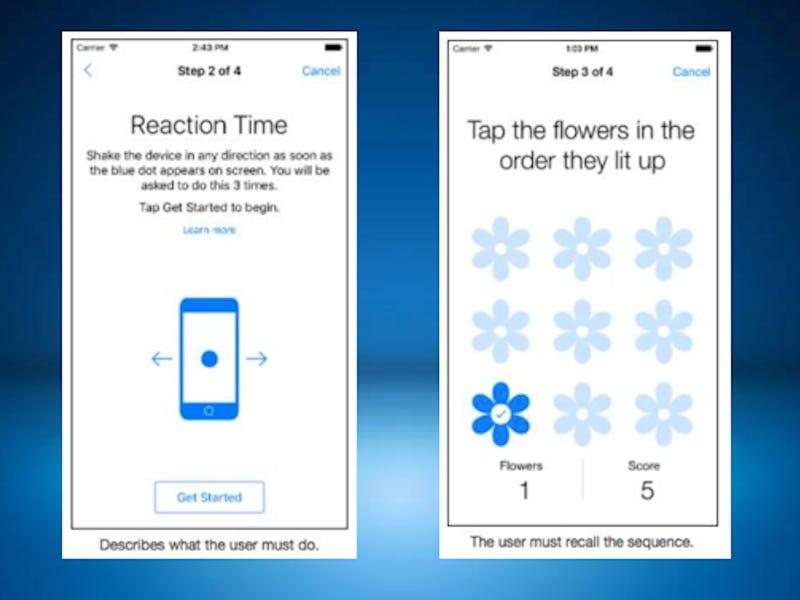Government-Funded 'Am I Stoned?' Marijuana App Tells You: You're Stoned
If you have to ask...

If you’ve ever wondered how stoned you are, take comfort in the fact that you’re not alone: Government officials are wondering the same thing. With the drug becoming increasingly prevalent in mainstream society, officials are seeking new ways to ensure highway and workplace safety don’t suffer while people are getting legally stoned. To that end, on Tuesday behavioral pharmacologists funded by the National Institute on Drug Abuse announced their research on a mobile phone app that can tell whether you’re too stoned to do stuff.
Elisa Pabon, a Ph.D. candidate at the University of Chicago, presented the app at the annual meeting of the American Society for Pharmacology and Experimental Therapeutics on Tuesday. The app, called Am I Stoned?, is still in its research phase, but Pabon’s preliminary results suggest that the concept is on firm ground. It’s just as well, considering that scientists trying to create a marijuana breathalyzer still haven’t figured it out.
'Am I Stoned' puts the user through several tasks to determine just how stoned they are.
Here’s how the app works: Anyone who’s gotten stoned knows that pot interferes with your ability to do stuff, so the researchers figured they could indirectly measure how high a person is by tracking how badly they performed on certain digital tasks. To test this concept, Pabon conducted a small, double-blinded trial of 24 subjects who got high on THC, the main psychoactive ingredient in marijuana. Some consumed 7.5 milligrams of THC (a mild dose), some got 15 milligrams, and some just got a placebo. Each participant then performed tests on a computer and shorter tasks on a mobile phone, all of which were meant to measure their cognitive speed, reaction time, fine motor ability, and memory.
The team got mixed results, but the study is a good start. “Performance was impaired by THC in three of the four computer tasks, but only one of the iPhone tasks,” they wrote in their presentation abstract. Measuring a stoned person’s impairment, it seems, takes more time than an iPhone tasks allows.
The 'Am I Stoned' app will include tasks that test a person's level of impairment
“The effects of THC on performance may be subtle, so we need highly sensitive tasks to detect impairments,” said Pabon in a statement. “It is likely that the computer tasks, which took 15 to 20 minutes to complete, were more sensitive to THC impairment because they provided more opportunity to detect a drug effect.” Since this early version of the test was most effective on a computer, it’s not very convenient for real-world use. And since the researchers say it requires 15 to 20 minutes to achieve sufficient sensitivity, a convenient version of the current test probably wouldn’t be sensitive enough. So Pabon and her colleagues next must ensure the app is sensitive and convenient — while still being accurate.
They might want to take a cue from marijuana users themselves. The most accurate assessments of impairment, ironically, came from the study participants, who generally were very aware that they were stoned. “With regard to self-assessments, subjects were in general accurate in their awareness of impairments on the tasks,” the team wrote.
'Am I Stoned' measures reaction time, among other things.
At this stage of development, the app isn’t intended to help you figure out whether you’re too stoned to drive or operate a bulldozer, so the Inverse staff couldn’t take it for a test drive (trust us, we asked), but down the line, Pabon and her colleagues hope to create a product that will make it quick and easy for people to do that kind of self-assessment. In the meantime, with no mobile app or marijuana breathalyzer to test your stoned-ness, you’re still going to have to use your own judgment. And since marijuana does seem to be associated with deadly car crashes, an app that can help you tell whether you’re safe to drive does seem like a welcome addition. Let’s just hope the government funders aren’t tracking your test results.